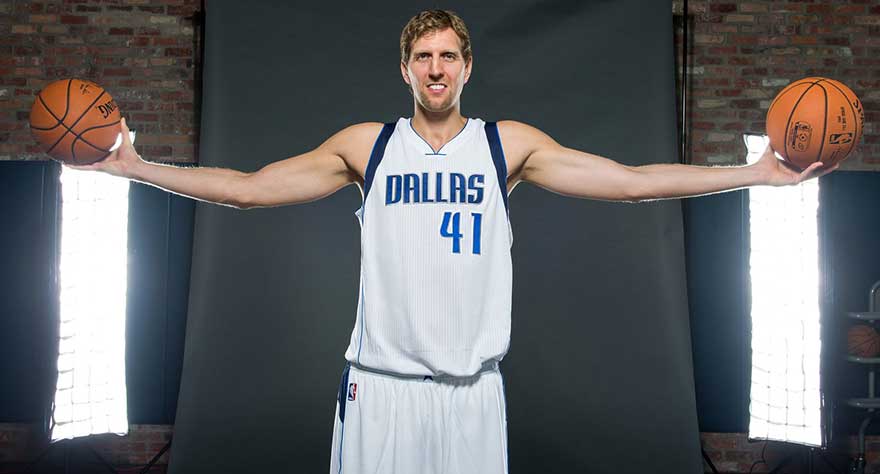
With no compelling story or emotional arc, this behind-the-scenes career doc should only appeal to diehard fans of its subject.

With no compelling story or emotional arc, this behind-the-scenes career doc should only appeal to diehard fans of its subject.
If you are even a casual sports fan, you probably know Dirk Nowitzki. He might not be a household name, but he has made a name for himself in the National Basketball Association as one of the best players of this generation. He’s been an All-Star 13 times, the league’s MVP in 2007, and led his team, the Dallas Mavericks, to the championship in 2011. He redefined how big men played the game, as he could play away from the hoop with his signature long-range shot. Now, whenever a good shooting prospect comes out of Europe, they aren’t compared to Michael Jordan or LeBron James, but Dirk Nowitzki.
There is no doubt that Nowitzki is a great athlete, but is he worthy of his own documentary? Making a profile documentary on a sports star who is still active is a challenging proposition—is the story complete? Is the subject compelling off the court? Is the film more than a fluff piece bit of self-promotion? Nowitzki: The Perfect Shot struggles with these common pitfalls, though it has some style and is otherwise a mildly entertaining look at the rise and career of its star.
The film does its best work in the first act, featuring Nowitzki as a young man in Germany. Here, the film is as much a profile of his small hometown (with an elevation nearly four times the total population) and the coach who has been a lifelong influence. Holger Geschwindner, a pupil of the father of German basketball, found Nowitzki as a lanky kid who had a natural feel for the game. The coach is a perfect marriage for his student, as boisterous as Nowitzki is reserved. If there is a true character in Nowitzki: The Perfect Shot, it is Geschwindner. Multiple pros throughout the film refer to Holger as a “mad scientist,” which describes both his unusual style and his intelligent approach to the fundamentals of basketball. Nowitzki and others praise the coach’s complete attention to every aspect of shooting a basketball – which has undoubtedly had an effect.
Nowitzki: The Perfect Shot hedges toward basketball novices, with talking head layman’s explanations of certain aspects of professional basketball, but I don’t see non-fans getting much out of the film. A major reason is that Nowitzki just isn’t interesting in a doc-profile way. He’s a quiet, even-keeled, self-disciplined momma’s boy. Nowitzki and others talk at length about how he doesn’t drink alcohol and feels uncomfortable in public. Showing him talking through his yoga routine or cursing after throwing a bowling gutter is about as animated as he gets.
The most controversial part of his life (possibly the only controversial part of his life)—a public falling out with his former fiance—is glossed over in a few minutes, seemingly mentioned only as a bridge to his current wife. His friends talk briefly about the embarrassing incident, but it is never broached by Nowitzki, except for a post-game conference clip. It would have been the only real look into the man’s emotional personality, but it either wasn’t determined important by the filmmakers or an approachable topic for its subject.
Those who have followed Nowitzki’s career, either casually or as a hardcore fan, will get most out of the film’s early segments, before his transition into a professional. As I already mentioned this section contains the most humor: game footage of the young man, complete with a Nick Carter haircut and large hoop earring, is probably most fans’ the first look at this time in his life. Once Nowitzki comes to the NBA, there is more great game footage, but no real surprises and only the most elemental sketches of a character arc. Talking heads mention that Nowitzki changed the perception of European players and that he got over the hump by winning a championship, but it doesn’t feel more than talking head babble.
Reviewing those questions I posed at this review’s opening, Nowitzki: The Perfect Shot covers enough of a full story, but there isn’t quite an ending; the subject is undoubtedly an important figure in his arena, but isn’t a compelling figure to watch, and the film avoids the challenging aspects of his character. It is a fan service-only documentary that gives only the slightest behind-the-scenes look, but a good opening context.